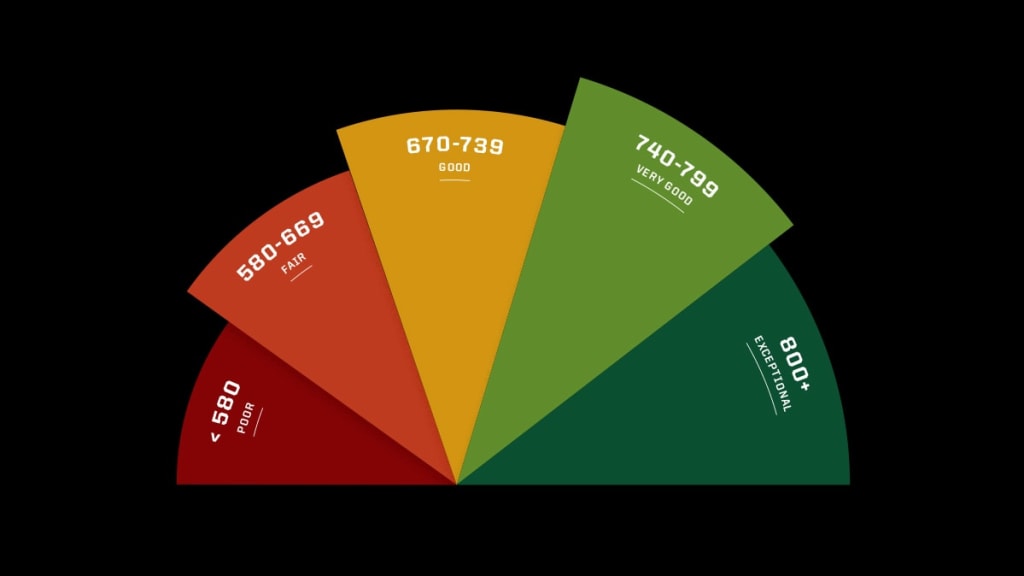The Importance of Building a Strong Credit Score
Build your credit score for better future

Having a strong credit score is crucial in today's financial world. It affects your ability to obtain loans, credit cards, and even rental agreements. In this article, we will discuss why building a good credit score is important and how you can improve and maintain it.
What is a Credit Score?
A credit score is a numerical representation of your creditworthiness. It is calculated based on your credit history, including payment history, credit utilization, length of credit history, and types of credit used. A good credit score typically ranges from 700 to 749, while a score of 750 or higher is considered excellent.
Why is a Good Credit Score Important?
- Better Interest Rates - Lenders use your credit score to determine the interest rate you will be offered for loans and credit cards. The higher your credit score, the lower the interest rate you will be offered, potentially saving you thousands of dollars in interest charges over the life of the loan.
- Increased Loan Approval - Lenders use your credit score to assess your ability to repay loans. The higher your credit score, the more likely you are to be approved for a loan. This is especially important when applying for large loans, such as a mortgage or car loan.
- Access to Credit - A good credit score increases your chances of being approved for credit cards and loans. This means you will have access to the credit you need when you need it.
- Improved Rentability - Landlords and property managers also check credit scores to determine a tenant's ability to pay rent on time. A good credit score can improve your chances of being approved for rental properties.
The Consequences of Not Maintaining a Good Credit Score
Failing to maintain a good credit score can have serious consequences that can impact your financial stability and future. Here are some of the effects of not having a good credit score:
- Higher Interest Rates - Lenders use your credit score to determine the interest rate you will be offered for loans and credit cards. If you have a low credit score, you will be offered higher interest rates, potentially costing you thousands of dollars in interest charges over the life of the loan.
- Decreased Loan Approval - Lenders use your credit score to assess your ability to repay loans. If you have a low credit score, you may be declined for a loan or offered a loan with unfavorable terms. This can make it difficult to purchase a home, car, or pay for other expenses.
- Limited Access to Credit - A low credit score can make it difficult to obtain credit cards and loans. This can limit your financial options and flexibility, making it harder to manage expenses and emergencies.
- Reduced Rentability - Landlords and property managers also check credit scores to determine a tenant's ability to pay rent on time. A low credit score can make it more difficult to find a rental property.
- Increased Insurance Premiums - Some insurance companies use credit scores to determine insurance premiums. A low credit score can result in higher insurance premiums, adding to the already high costs of insurance.
These consequences of a low credit score can have a significant impact on your financial stability and future. That's why it's important to maintain a good credit score by paying bills on time, keeping credit card balances low, and monitoring your credit report regularly.
How to Improve and Maintain a Good Credit Score
- Pay your bills on time - Late payments can have a significant impact on your credit score. Set up automatic payments or reminders to ensure all of your bills are paid on time.
- Keep credit card balances low - High credit card balances can decrease your credit score. Try to keep your credit card balances below 30% of the credit limit.
- Don't close old credit cards - Length of credit history is a factor in determining your credit score. Closing old credit cards can shorten your credit history, negatively impacting your credit score.
- Monitor your credit report - Regularly checking your credit report can help you identify and dispute errors, as well as detect fraud.
- Avoid applying for too much credit - Every time you apply for credit, it shows up as a hard inquiry on your credit report. Too many hard inquiries can lower your credit score.
By following these tips and regularly monitoring your credit score, you can improve and maintain a good credit score, giving you access to better loan and credit opportunities.
Conclusion
A strong credit score is essential in today's financial world. By understanding its importance and taking steps to improve and maintain it, you can take control of your financial future and secure better loan and credit opportunities.
About the Creator
Vinodhkumar M V
Vinodhkumar M V is a tech-focused writer with a passion for crafting engaging content. He delivers in-depth analysis and articles on the latest tech trends with expertise and a compelling writing style.





Comments
Vinodhkumar M V is not accepting comments at the moment
Want to show your support? Send them a one-off tip.